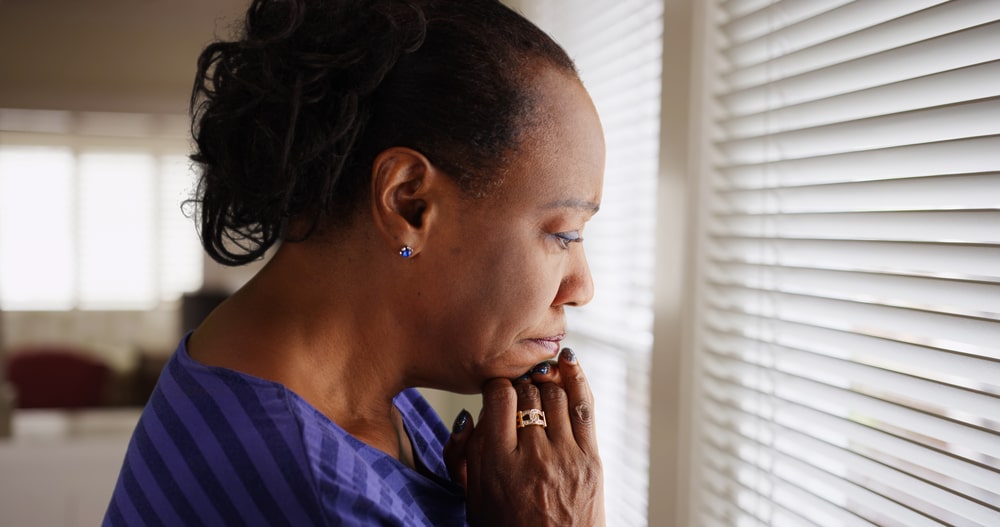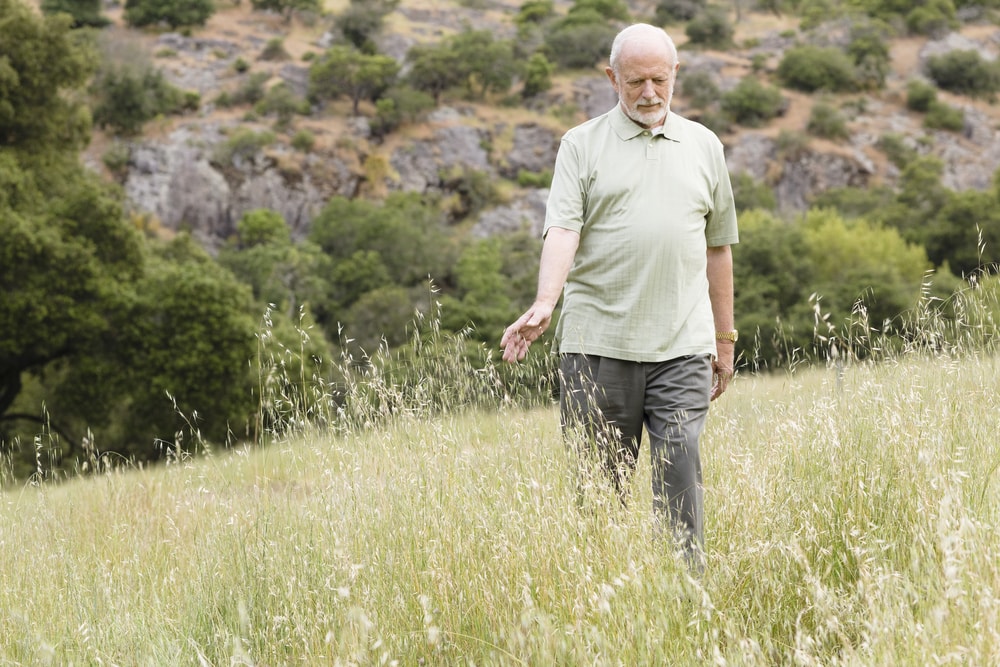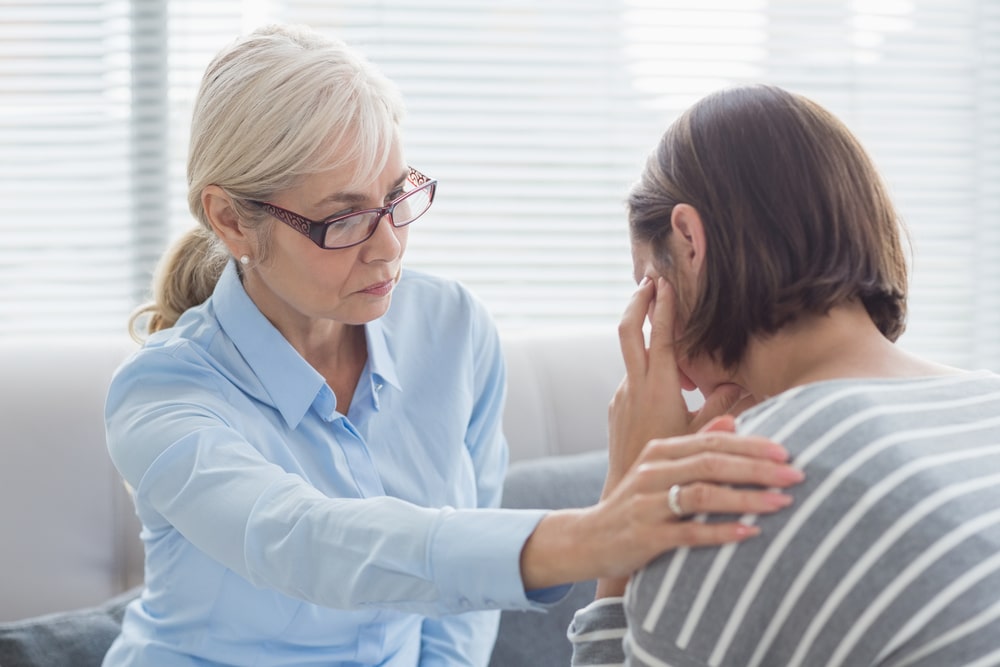Grief, in its normal context, is already difficult to bear and elicits a variety of emotions. When you add in the element of trauma, everything becomes more complicated. When a loss is sudden, unexpected, or associated with horror, the impact is profound, and it will take much longer to heal.
Defining Grief

According to nationally-recognized grief counselor, educator, and author Dr. Alan Wolfelt, grief is “everything we think and feel inside after someone we love dies or leaves or something we are attached to goes away. In other words, grief is the instinctive human response to loss. Grief is natural and necessary, [though] our culture tends to deny, diminish, and judge the pain of grief…. If you are grieving, rest assured that what you are experiencing is not only normal, it is the very thing that will help you heal.”
We grieve because we love, so it is natural to experience feelings of grief at a time of loss. The feelings that manifest will vary from person to person with some experiencing sadness while others experience anger, relief, or disbelief. There is no right or wrong way – you simply feel what you feel.
Defining Trauma
Trauma is defined as “a psychological, emotional response to an event or an experience that is deeply distressing or disturbing.” The element of trauma can complicate grief in a wide variety of situations: violent or sudden deaths, witnessing the death, serious illness or injury, accidental death, experiencing a natural disaster, or going through a divorce, to name a few. Ultimately, it doesn’t matter which type of event you experienced, what matters is your response to it and how deeply it affected you.
It is important to note that some individuals who experience traumatic grief (or traumatic loss) will likely exhibit Post-Traumatic Stress Disorder (PTSD) symptoms. This doesn’t mean that everyone will showcase symptoms, but a minority will, depending on the situation. For survivors of assault and other crimes, natural disasters, car accidents, mass shootings or the sudden death of a loved one, some degree of PTSD is common and can have deep psychological effects.
Dealing with Traumatic Grief

With traumatic grief, there is a dual challenge: coping with the trauma while also coping with the grief.
In the beginning, trauma will overshadow grief. In many cases, this means that shock and disbelief will take hold at first, interfering with the normal grief process. These feelings of shock and disbelief will actually protect you. As Dr. Wolfelt puts it, “If you are in the early days of your grief journey, you are likely still feeling numbed by shock and disbelief. This is a normal and necessary step, for it is nature’s way of protecting you from the full force of the loss all at once.” Eventually, the feelings will abate, as you become ready to deal with reality.
It’s important to be on the lookout for indicators that a person is suffering from traumatic grief. Some symptoms include: insomnia or sleep disturbances, anxiety, poor concentration, loss of appetite, feelings of guilt and blame, shattered assumptions about the world, themselves, and others, or fear of grief and trauma reactions.
In general, trauma makes grief harder to resolve. In other words, it will take longer and require more work, but it most certainly can be done. People who have experienced a traumatic loss can go on to find new meaning in their lives and eventually reconcile themselves to their loss.
7 Tips for Coping with Traumatic Grief
1. Take your time.

The grief journey is different for everyone, and there’s no set time frame. With the added complication of trauma, it’s best not to rush. Instead, take the time you need to fully explore both your feelings regarding the traumatic event itself and your grief feelings associated with that event. Dr. Wolfelt says, “Grief is not something you can do all at once. Feeling so many feelings often leads to [feeling overwhelmed]. Instead, take in ‘doses’ of grief and mourn in bits and pieces.”
2. Be kind to yourself.
Grief is hard work, and if you are to reconcile yourself to the loss you have suffered, you will need energy for the days, months, and possibly years to come. Practicing self-care is not about feeling sorry for yourself, but about caring for yourself with compassion. You have suffered a loss, and you need compassion. Dr. Wolfelt reminds us that “self-care fortifies your long and challenging grief journey…to be self-nurturing is to have the courage to pay attention to your needs.”
3. Don’t fear your feelings.

After a traumatic event, it’s natural to experience shock and disbelief. However, eventually these two feelings will disappear, and others will take their place. When this happens, don’t be afraid. You may experience fear, anxiety, anger or a strong sense of loss or sadness. In cases of traumatic loss, you may experience flashbacks or sensitivity to certain sounds or words (e.g. sudden, loud noises; squealing tires, etc.). Don’t try to “be strong” but instead focus on letting yourself replay the events in your mind as you work to come to grips with them.
4. Allow yourself to replay events.

This may seem counterintuitive and scary, but in order to process an event, you have to face it. Dr. Wolfelt assures us that replay is natural and normal. He says, “Replay helps you begin to acknowledge the reality of the death and integrate it into your life. It is as if your mind needs to devote time and energy to comprehending the circumstances of the death before it can move on to confronting the fact that someone you love has died and will never be present to you again.” Depending on the traumatic event you experienced, it may be best to replay the events in small “doses” so that you don’t become overwhelmed. You may even find an experienced counselor to take the journey with you.
5. Be aware of PTSD symptoms.
As we discussed earlier, someone who has experienced a traumatic event may exhibit symptoms of PTSD. While it is most commonly associated with veterans, civilians can also experience PTSD. A few symptoms to look out for: nightmares or scary thoughts, anger, inability to trust people, high anxiety levels, always expecting danger, to name a few. A person can exhibit a few of these symptoms without it being full-blown PTSD. To determine whether you or a loved one is experiencing PTSD, it’s best to speak with a professional. Above all, remember that PTSD is not linked to your personality, but to the intensity and duration of a stressful event.
6. Find ways to express yourself.

“Self-expression can change you and the way you perceive and experience your world. Transforming your thoughts and feelings into words gives them meaning and shape. The alternative—denying or suppressing your pain—is in fact more painful. If you do not honor your grief by acknowledging it, it will accumulate and fester.” Dr. Wolfelt makes an excellent point. We must make time to explore and express our feelings, or they will destroy us from the inside. There are many ways to do this. Pick one that fits you best: journaling, painting, talking it out, building, hiking, exercising, etc.
7. Seek out support.

You have experienced something difficult, heartbreaking, and traumatic. You can’t move forward all alone – you need people. A group of people to offer support and encouragement, to give you hope when the days are dark, and to stick with you no matter what lies ahead. And for many, it’s helpful to speak to a licensed counselor who can help you navigate through the murky waters of traumatic grief.
The journey ahead is not something you asked for. It will include some long and difficult days. But you and your future are worth it. Don’t give up on finding new meaning and joy in life and learning how to incorporate what you’ve experienced into the story of your life. The past doesn’t define you unless you let it. Your present choices can pave a new path into a bright future.




